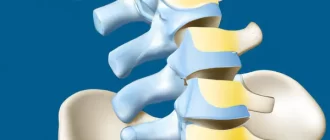Nerve pain in the hand often stems from various underlying conditions, each disrupting the normal function of the nerves. Commonly, it can be a result of nerve compression or damage, where the nerve is pinched or pressured, as seen in carpal tunnel syndrome. Injury or trauma to the hand may also cause nerve damage, leading to acute or chronic pain.
Medical conditions such as diabetes can cause peripheral neuropathy, where the nerves are systematically damaged due to high blood sugar levels, affecting the hands and feet. Additionally, inflammatory diseases like arthritis can affect the nerves indirectly through swelling and structural changes in the hand.
Sometimes, nerve pain arises from infections or exposure to toxins that compromise nerve tissue or from repetitive stress injuries due to monotonous motion patterns. It’s critical to consider both lifestyle factors and medical history, as these can heavily influence the onset and progression of nerve pain in the hand. Understanding the root cause is key to finding effective treatments and managing pain.
Medications that treat nerve pain in the hand
When dealing with nerve pain in the hand, finding an effective treatment can provide significant relief from discomfort and improve quality of life. Fortunately, there are several medications that your doctor may prescribe depending on the cause and severity of your nerve pain:
- Over-the-counter pain relievers: For mild nerve pain, over-the-counter pain medications such as ibuprofen or acetaminophen may help reduce inflammation and alleviate pain.
- Topical treatments: There are creams and patches that contain pain-relieving substances, which can be applied directly to the skin over the painful area for targeted relief.
- Anticonvulsants: Medications originally designed to treat epilepsy can be effective in managing nerve pain because they work on the nervous system to stabilize nerve activity.
- Antidepressants: Certain antidepressants have been found to be effective for nerve pain. These medications may increase neurotransmitters in the brain that reduce pain signals.
- Prescription painkillers: In cases of severe pain, stronger prescription medications, like opioids, may be considered under careful medical supervision due to the potential for addiction and side effects.
Working closely with your healthcare provider is the best way to determine the most appropriate medication for your specific situation. They can guide you in balancing symptom management with potential side effects and interactions with other medications you might be taking.
Exercises for nerve pain in the hand
If you’re grappling with nerve pain in your hand, incorporating simple exercises into your daily routine can be a gentle yet effective way to regain strength and reduce discomfort. These movements are designed to stretch and strengthen the muscles surrounding the nerves, improving circulation and potentially easing pain.
- Wrist Flexor Stretch: Extend your arm with the palm up and gently pull back on the fingers with your other hand, stretching the muscles on the inside of your forearm. Hold the stretch for 15-30 seconds.
- Wrist Extensor Stretch: This time, extend your arm with the palm down, and gently pull the back of the hand towards your body, stretching the outer forearm. Make sure to hold this stretch for another 15-30 seconds.
- Tendon Glide: Start by holding your fingers straight out. Then, bend the top two joints of your fingers, keep your fingers in this position, and finally, curl your fingers to make a fist. Repeat this sequence several times.
- Nerve Gliding: Another helpful technique is nerve gliding, which can help to improve the movement of nerves within the surrounding tissues. There are specific nerve gliding exercises for conditions like carpal tunnel syndrome which can be particularly helpful.
Remember to perform these exercises gently and slowly to avoid any additional injury, and if at any point you feel increased pain or discomfort, stop immediately and consult with a healthcare professional.
Home remedies for nerve pain in the hand
If you are experiencing nerve pain in your hand, there are several home remedies that you can try to alleviate the discomfort. Warm compresses often provide relief by promoting blood flow to the area. Soak a washcloth in warm water, wring it out, and apply it to your hand for 5-10 minute intervals.
Alternatively, you can explore the benefits of essential oils like lavender or rosemary, which are reputed for their anti-inflammatory and analgesic properties. Gently massage a few drops mixed with a carrier oil into the affected area to help soothe the pain.
You may also find relief in over-the-counter pain relief creams that contain capsaicin or lidocaine. These can provide temporary numbness or create a sensation that supersedes the pain.
Lastly, maintaining a healthy diet rich in anti-inflammatory foods, such as leafy greens, nuts, and fatty fish, can help reduce overall inflammation and potentially improve nerve pain.
When to see a doctor?
While home remedies may offer temporary relief for nerve pain in the hand, it’s crucial to recognize when to seek professional medical advice. If you experience severe, sudden, or persistent pain, especially after an injury, immediate doctor consultation is necessary. It’s also important to see a doctor if your hand pain is accompanied by swelling, redness, or warmth, as these might be signs of inflammation or infection.
Chronic symptoms such as tingling, numbness, or weakness that persist over days or worsen over time should not be ignored.
These may indicate an underlying condition such as carpal tunnel syndrome or a nerve injury that requires proper diagnosis and treatment. Additionally, if your daily activities or sleep are affected due to the discomfort, it’s time to visit a healthcare provider. Consultation with a doctor will ensure an accurate diagnosis and an appropriate treatment plan that may include medication, physical therapy, or sometimes surgery.
Conclusion
In the context of nerve pain in the hand, understanding when to seek medical attention is paramount. The remedies mentioned may provide you relief, but they are not substitutes for professional medical advice. Do not underestimate the seriousness of nerve pain, as it could be a symptom of a more significant issue.
Early intervention by a healthcare provider can make a world of difference in managing your condition. An accurate diagnosis can lead to a comprehensive treatment plan that may include medication, physical therapy, or surgery. This can prevent further nerve damage and improve your quality of life. Therefore, if you are experiencing persistent or severe symptoms, it’s time to put down the home remedies and visit a doctor.
Ultimately, the best way to address nerve pain in the hand is by combining immediate remedies with responsible medical care. This integrated approach will ensure you’re not just masking the pain, but actively working towards a solution for long-term relief and recovery.
About the Author
Reyus Mammadli is the author of this health blog since 2008. With a background in medical and biotechnical devices, he has over 15 years of experience working with medical literature and expert guidelines from WHO, CDC, Mayo Clinic, and others. His goal is to present clear, accurate health information for everyday readers — not as a substitute for medical advice.







